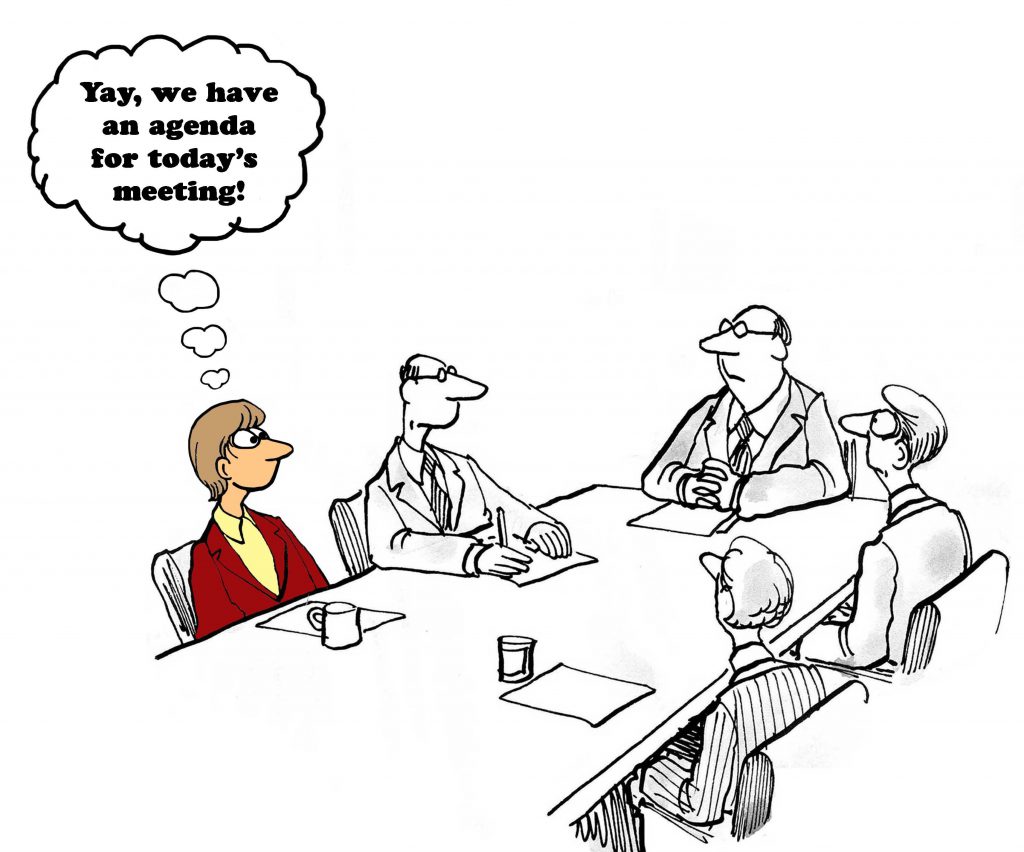Reconceptualising meetings
By Paul
Once, I ran a workshop in which I started by asking participants to close their eyes and visualise the worst meeting they had ever witnessed in a university.
I was the only one who had the opportunity to see the effect this had on everyone in the room. Looking round I saw the emotions that appeared in people’s faces – frowns, some smiles, raised eyebrows and creased foreheads. They weren’t thinking of meetings that simply served an operational purpose, they were recalling distinctly emotional experiences.
I had anticipated drawing out from the group the factors which contributed to the awfulness of their respective meetings, and that these would lead to an analysis of dysfunction. It suddenly occurred to me how unlikely it was that those responsible for planning and chairing these meetings had actually considered the emotional outcomes which would result; what bad tastes they might leave, and that the people in the room would recall, sometimes years after the meeting took place. I made a note to myself to plan for my own meetings as experiences rather than transactional encounters.

Most of us have learned how to conduct ourselves in meetings through long (and sometimes bitter), cumulative experience. We contribute in ways which emulate – or oppose – the behaviours of those around us. We make conscious and unconscious decisions about how to handle the deeds and utterances of others. At our worst, we might come away battle-scarred, bemused or humiliated. We may find ourselves saying things like “I didn’t have a clue what was going on there!”
At our best, however, we might take pride in the way we were able to lift the moral tone, shape a decision or influence constructive relationships. On these occasions, we’re likely to say with pleasant surprise “Well, that went well!”
The impact of meetings that engage everyone around the table – virtual or otherwise – is the ability and freedom to move forward with projects. To have everyone pulling in the same direction. It builds trust, and individual and collective resilience. It enables things to move forward.
Before embarking on planning for online meetings you need to chair, it would be worth considering the purpose you have in mind. Is it a:
- Meeting to inform?
- Meeting to discuss?
- Meeting to decide?
- Meeting to (re)solve?
- Meeting to innovate?
- Meeting to sell?
- Meeting to meet – reinforcing social connections?
Once you’re clear on the intent of the meeting (rather than a statement of its objectives), you can decide on the tone you need to set which will determine how the meeting can generate extraordinary value for everyone involved, and create stronger commitment and motivation.
It can be helpful to set up a meeting in ways which make clear that you expect it to be focused on achieving particular outcomes. These might relate to decisions to be taken, or priorities to be agreed. Alternatively, they may be set in a wider strategic context and include intended outcomes concerning understanding or evaluation, for instance.
Here are some examples:
| Agenda item | Desired outcome |
|---|---|
| Planning online degree ceremonies | Joy and anticipation in finding alternative ways to celebrate students’ success |
| Diversity and Equality Strategy for the Faculty | Commitment to fundamental changes in power structures and working cultures |
| Impact of student absences | Realisation of importance to the whole department of building rapport and engagement with all students |
| Head of Department’s Question Time | Potential empowerment in voicing priorities and concerns which may be acted upon |
There is no suggestion here that you should publish your desired outcomes in the agenda; the key point is that you dedicate some time and energy to noting for yourself the emotional outcomes that you intend from the decisions which might be taken, or the messages which are to be communicated.
 Your activity
Your activity
Here’s a short planning task for our final online meeting. This should take you about 15 minutes.
Please would you bring your notes on this to our next online conversation?
Think of your next meeting. What’s it about? What are the objectives on the one hand, and the emotional and motivational outcomes on the other?
When you have these in mind, consider now how you will recognise the signals for achieving the emotional and motivational outcomes. Will it be someone taking an action forward? Or will it be gaining agreement from everyone on a policy matter?
Make a short list, noting how many of these signals are about people’s performance, and how many are about their behaviours.
Hints and tips
Keep meetings short. Be assertive. Say “no” more often. Be more conscious about managing your time and priorities. Concentrate on only major issues. Skip secondary tasks.
 Resources
Resources
A selection to read, watch or listen to, to help find a new perspective.
- Read How to get people to actually participate in virtual meetings by Harvard Business Review. 2 mins.
- Read Make your meetings a safe space for honest conversation by Harvard Business Review. 2 mins.
- Read Reimagined: Productive meeting, an oxymoron? by Louise Clifton for Invisible Grail. 4 mins.

Dr Paul Gentle
Paul is the Academic Director at Invisible Grail. A leadership expert, Paul has dedicated the last twelve years to creating and delivering leadership development programmes in higher education.